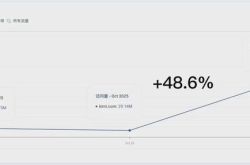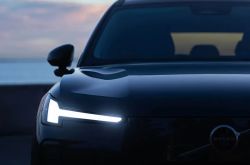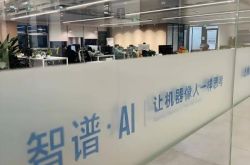Boom! This Chinese National Beats Microsoft and Apple, Becomes World Number One
![]() 07/18 2024
07/18 2024
![]() 701
701
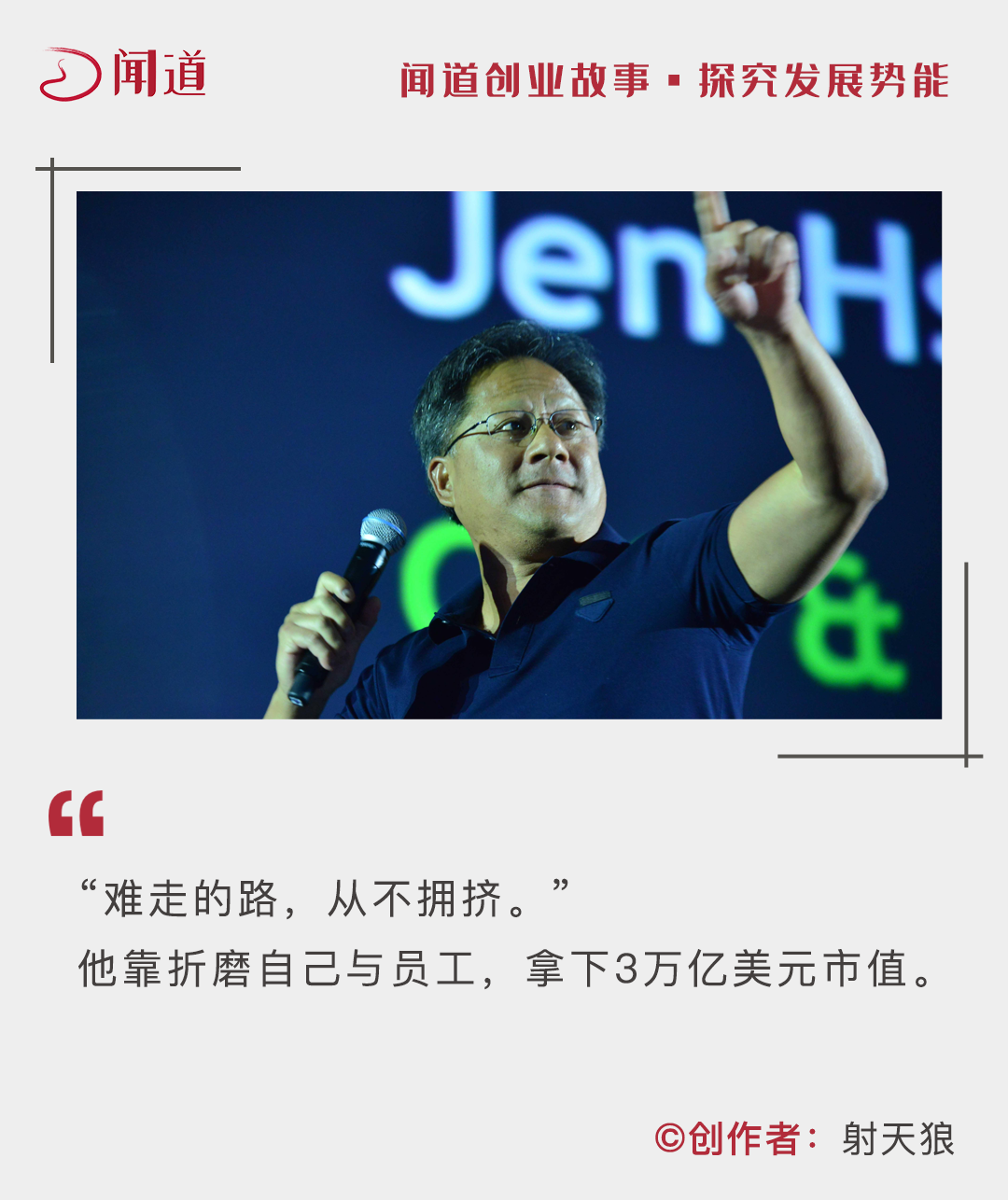
On March 6, 2024, Huang Renxun, CEO of NVIDIA, with his graying hair and clad in a black leather jacket, returned to Stanford University.
Without pleasantries, small talk, or even blessings, Huang Renxun left his alma mater (students) with a harsh message: "I wish you experience enough pain and suffering."
Three months later, NVIDIA, with only 30,000 employees, surpassed the $3 trillion market capitalization mark, briefly surpassing Apple to rank second globally. On June 18, the AI chip giant surpassed Microsoft with a market value of $3.34 trillion, briefly taking the top spot in the world.
Without the scrutiny of the superior or the aura of an emperor, from a bathroom attendant to the king of chips, Huang Renxun demonstrated a truth over 30 years: Success stems from pain.
Strong Man: Never Give Up, Work Hard to the End
In 1973, 9-year-old Huang Renxun immigrated to the United States with his parents.
Far from being affiliated with wealthy families, their relentless work failed to alleviate the financial constraints of the Huang family. Rather than easily adapting to American life, Huang Renxun realized the difficulties of living.
Shortly after arriving in the US, Huang Renxun enrolled in a local boarding school. Being the youngest child in the class, while others were assigned to work on tobacco farms, Huang Renxun was left to clean all the bathrooms.
"It wasn't an easy job, considering what they left behind... But it was my job, and I did it meticulously." Whenever recalling this, Huang Renxun always feels deeply moved.
Not only that, Huang Renxun also gained confidence working at Danny's Restaurant. From dishwasher to cleaner and then server, Huang Renxun felt that he "must be the world's best bathroom cleaner."
The intricacies of life forged Huang Renxun's incredibly resilient attitude and unwavering belief: No matter how big or small, I will do my best in every job.
On April 5, 1993, 29-year-old Huang Renxun founded NVIDIA in California, aiming to develop a chip that could achieve realistic 3D graphics on computers.
At that time, the budding Huang Renxun had little confidence, which could be seen on his face. "I had acne all over my face, but I still had to meet lawyers and venture capitalists. I felt very insecure with a big pimple on my forehead. Compared to well-dressed, mature, and steady CEOs, I felt quite uneasy."
Just like Huang Renxun's discomfort, NVIDIA's early years were also not smooth sailing, quite bumpy, in fact.
At the beginning of its venture, there was no standard for 3D graphics processing chips, and NVIDIA chose the lower-cost quadrilateral texture mapping route. But soon after, Microsoft released the Direct 3D standard, supporting the triangular texture mapping route.
Considering that Sega, a game developer, had already ordered NVIDIA's quadrilateral chip NV1 and prepaid $7 million, NVIDIA's stubborn Chief Technology Officer Prem Ayyagari still intended to continue using the quadrilateral NV2 to appease Sega and complete the delivery.
This unwise decision angered Sega, as triangular technology soon became mainstream.
Huang Renxun had to personally put out the fire. Wearing a leather jacket, he approached Sega CEO Sakurai Akira. His confidence once again impressed Sakurai, who not only retained the order but also convinced his boss to increase investment in NVIDIA.
Orders, investments, and the valuable six months needed to change course saved NVIDIA. Subsequently, Huang Renxun replaced the Chief Technology Officer and ramped up R&D on breakthrough chips, ultimately stabilizing the company during its early stages.
Afterwards, Huang Renxun mentioned more than once, "NVIDIA was only one step away from bankruptcy." "We were 30 days away from closing down."
Subsequent events proved that this was no exaggeration. NVIDIA's growth path was indeed fraught with danger.
Around 2002, after angering Microsoft, the latter allied with Intel and ATI to besiege NVIDIA, causing its market value to shrink by 90% within the year. Circumstances were stronger than people, and in the end, Huang Renxun had to compromise with the big players to turn the situation around.
In addition to external crises, Huang Renxun also paid a "10-year tuition fee" for his overambition.
In 2006, adhering to Huang Renxun's accelerated computing concept, NVIDIA launched CUDA, a supercomputing software package. Huang Renxun had high hopes for CUDA: We are democratizing supercomputing.
But Huang Renxun's enthusiasm met with a cold reception from the market. The market's logic was clear: They didn't want to spend more money on it and were even less willing to pay a high premium.
Huang Renxun had to personally seek out markets and customers, but initial results were minimal. However, in pursuing this goal, NVIDIA invested too much, and the substantial costs dragged down the company's gross profit, causing NVIDIA's market value to plummet once again, facing another desperate situation.
The turning point came in 2012, when a university student at the University of Toronto bought two NVIDIA GeForce graphics cards and used them in the ImageNet annual visual recognition competition, ultimately winning with an exceptionally high score.
This catapulted NVIDIA into the spotlight, and since then, CUDA has been gradually applied to the neural network AlexNet research field, followed by AI artificial intelligence....
In 2016, NVIDIA built the world's first AI supercomputer, DGX-1, for OpenAI at no cost. Since then, ChatGPT has also used NVIDIA's GPUs in large model training.
When asked, "Without CUDA, could NVIDIA have achieved today's success in the field of artificial intelligence?" Huang Renxun replied, "Absolutely not." He explained that the idea of accelerated computing was simple but profound. Without acceleration, the amount of computation in the world doubles every year, eventually becoming uncontrollable.
Over 10 years, Huang Renxun finally turned a cold stove into a hot seat.
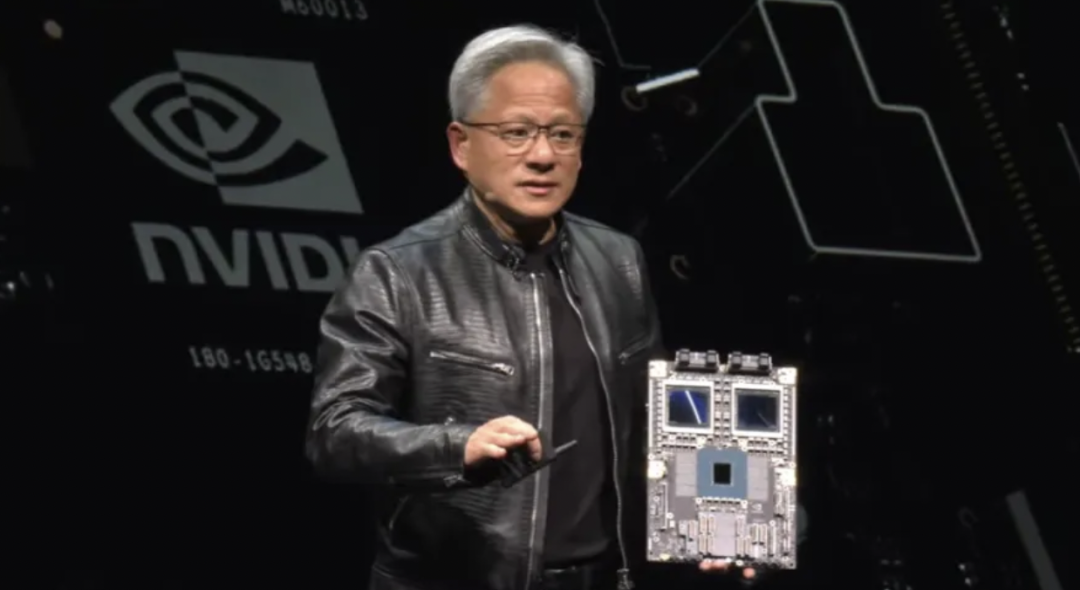
Ruthless Man: Torturing Employees, Torturing Himself Even More
In 2024, Huang Renxun has been CEO of NVIDIA for a full 31 years.
In the first quarter of fiscal year 2025, NVIDIA generated revenue of $26 billion, a year-over-year increase of 262%. Net income was $14.88 billion, a year-over-year increase of 644%. NVIDIA expects revenue of $28 billion in the second quarter ending in July, double that of the same period last year.
More impressive than the performance is the high sentiment in the capital market. On June 6, 2024, NVIDIA's market value surpassed $3 trillion, overtaking Apple to become the world's second-largest listed company by market value, second only to Microsoft.
But just a year ago, NVIDIA's market value had just surpassed $1 trillion. It took NVIDIA 8 months to rise from $1 trillion to $2 trillion, and less than 4 months to reach $3 trillion.
Without much talk, Huang Renxun bluntly stated, "Success is earned through perseverance."
Microsoft, renowned for its high technology, created a $3 trillion market value with 160,000 employees, while NVIDIA has less than 30,000.
In other words, at NVIDIA, each employee generates an average of $100 million (in market value). Why are NVIDIA's employees so capable?
Not long ago, a joke circulated online: It was said that Huang Renxun particularly disliked layoffs and preferred to "torture" his employees to make them stronger. According to Huang Renxun's philosophy, every employee will improve, and greatness will come when they finally get it.
Another reason for not firing employees is that Huang Renxun doesn't like working with new hires. "I've accumulated a lot of pain, joy, and knowledge in my interactions with veteran employees. I don't want to reset these life experiences, so I recommend lifelong positions."
Torturing employees, disliking new hires, sharing painful experiences with veterans, and then achieving success... Huang Renxun's success philosophy always seems different.
At this point, revisiting Huang Renxun's remark at the Stanford event, "I wish you experience enough pain and suffering," makes it even more meaningful.
Huang Renxun always believes that the best work is not those that consistently bring joy. After all, great things are not easy to do, so working hard on difficult or even painful tasks is more meaningful. "You need to experience pain and struggle to truly appreciate beauty."
Not just words, Huang Renxun also does this in practice: not only torturing employees but also torturing himself.
At NVIDIA, Huang Renxun directly leads 60 subordinates, but he never conducts one-on-one talks. Instead, he chooses to communicate equally with each employee in public, allowing everyone to participate in company challenges.
Huang Renxun also dislikes report-style meetings and regular operational meetings because there are many talented people in the company who can handle daily operations. The meetings I attend are all about problems, brainstorming, and creative sessions.
Undoubtedly, these meetings tend to be relentlessly demanding of oneself.
In addition to forward-looking developments like CUDA, Huang Renxun also proposed the more abstract concept of a "Zero-Billion-Dollar Market." In Huang Renxun's view, a zero-billion-dollar market represents a brand-new field full of limitless possibilities. Compared to competing for shares in existing markets, I enjoy creating and pioneering unprecedented undertakings even more.
Upon closer inspection, Huang Renxun's ambitions are significant. Assuming the current global internet economy is valued at 10, Huang Renxun seeks those transaction models that have yet to emerge. Once found, this scale could soar from 10 to 100.
Carrying these torments, Huang Renxun's first thing upon waking is work, until he goes to bed, seven days a week. "When I'm not working, I'm still thinking about work. Even when watching a movie, I might keep thinking about work and forget the content of the film." Of course, Huang Renxun also admits that he doesn't enjoy working every day or feel satisfied with the company every year, but he loves the company deeply, every moment of it.
Perhaps precisely because of this, Huang Renxun is able to be so ruthless and persistent in torturing himself. When CUDA struggled to gain traction, Huang Renxun saw it as a necessary sacrifice for the company's future: I just felt that everyone was wrong at the time.
For 31 years, Huang Renxun has relied on torturing and motivating himself and his employees, gradually making NVIDIA visible to capital.
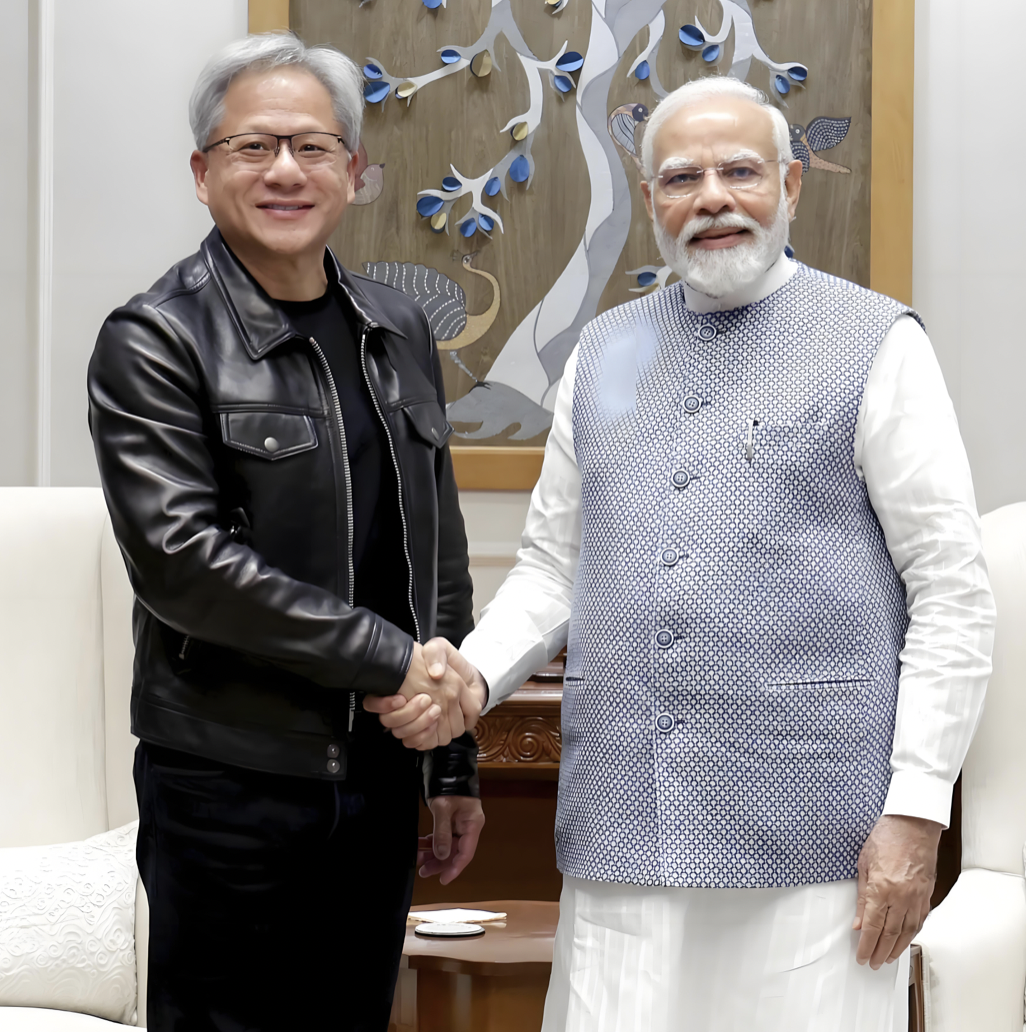
Madman: Skilled in Politics, Political Mistakes
"The difficult path is never crowded."
This businessman created a legend not just through technology but also through skilled "political" maneuvers.
Over the past year, Huang Renxun has been on the go, visiting political and business circles. In June 2023, Huang Renxun visited MediaTek and then met with Hon Hai Group Chairman Liu Yangwei. A month later, Huang Renxun met with US Secretary of State Blinken alongside well-known American companies like Intel.
In September 2023, he traveled to India to meet Modi. Modi posted on social media, "Discussed India's abundant potential in the field of artificial intelligence with NVIDIA CEO Huang Renxun. It was a very pleasant meeting."
At the end of 2023, he visited Japan, Singapore, Malaysia, and Vietnam in one go. In Japan, he claimed that "the future of robots will be fundamentally changed" and promised to guarantee Japan's GPU needs. In Malaysia, Huang Renxun said he met the world's only AI Prime Minister, Anwar Ibrahim, whose initials are AI. When meeting the Vietnamese Prime Minister, Huang Renxun frankly said it felt like "coming home."
In January 2024, Huang Renxun attended NVIDIA's Shanghai Annual Meeting. Dressed in a floral cotton-padded jacket, holding a red handkerchief, he danced the yangko dance, showing his political prowess. In February, he appeared in Dubai to attend the 2024 World Government Summit. In March, Huang Renxun returned to his alma mater, Stanford University, for an exchange, leading to the stunning remark at the beginning of this article.
Frequent travels and meetings with political heavyweights and even heads of state, Huang Renxun displayed a politician's face of flexibility and adept use of public opinion, whether eloquent, sincerely touching, gracefully charming, or engaging in interest games.
This is vastly different from product-focused Steve Jobs, heretical tech enthusiast Elon Musk, and extremely reclusive genius Jack Dorsey.
Unlike academic elites or complete tech enthusiasts, Huang Renxun believes in selfish pragmatism.
However, Huang Renxun, who is extremely smooth and seasoned in handling affairs, recently incurred public anger.
On May 29, due to incorrect statements regarding Taiwan, Huang Renxun was asked to "take a good lesson."
In January 2024, The Wall Street Journal disclosed that NVIDIA attempted to sell lower-performance AI chips to Chinese buyers, which was "tactfully rejected" by many domestic customers. As two recognized giants in the global AI race (China and the US), NVIDIA definitely doesn't want to lose the Chinese market.
But how to make up for it posed a dilemma for Huang Renxun, considering the restrictions on the other side of the ocean.
Misfortunes never come singly. According to US media reports on June 6 local time, the US Federal Trade Commission (FTC) and the Department of Justice will conduct antitrust investigations into Microsoft, OpenAI, and NVIDIA, examining the influence of these powerful companies in the AI industry.
According to sources, the FTC will lead the investigation into Microsoft and OpenAI, while the Department of Justice will focus on NVIDIA, with the investigation centering on the company's conduct.
It seems like another moment to save NVIDIA, and Huang Renxun is undoubtedly up to the task. Facing the media, the 61-year-old Huang Renxun continued to show his arrogant side, "I won't retire. I can still lead NVIDIA for 30 to 40 years."
World's Richest Person in 2025, Demonstrating Humans are Inferior to Dogs
The ruthless Huang Renxun also has another side.
According to Jensen Huang's routine, he used to wake up at 5 AM every day. However, since his dog always wakes up at 6 AM, Huang proactively adjusted his biological clock.
Huang explained his reasoning: "I feel guilty waking up the puppy; it makes me very anxious."
But with a sudden change in tone, Huang candidly stated, "But I don't mind waking up anyone else." Yes, this is Jensen Huang: "Whether it's for food or to avoid becoming food, he gives his all and keeps running."
American stock analyst Jim Cramer recently compared Elon Musk and Jensen Huang in a program: "I think Musk can foresee the future, but I believe Huang is thinking about changing the entire world model. He has single-handedly created an industrial revolution." The sharp rise in Huang's personal wealth is the best proof. On June 8, according to Sina Finance, Huang's net worth reached another milestone—$106.1 billion, making him the 13th richest person in the world. Additionally, it is widely expected that Huang could potentially surpass Tesla CEO Elon Musk to become the world's new richest person as early as 2025. Whether this is an exaggeration or an eventuality, we cannot judge at Nvidia's peak. After all, antitrust issues and the Chinese market are two significant external variables. For now, let's allow Mr. Huang to bask in his success a little longer, considering Nvidia only reached a trillion-dollar market cap just over a year ago. The key question is how long Nvidia can maintain a $3 trillion market cap.

